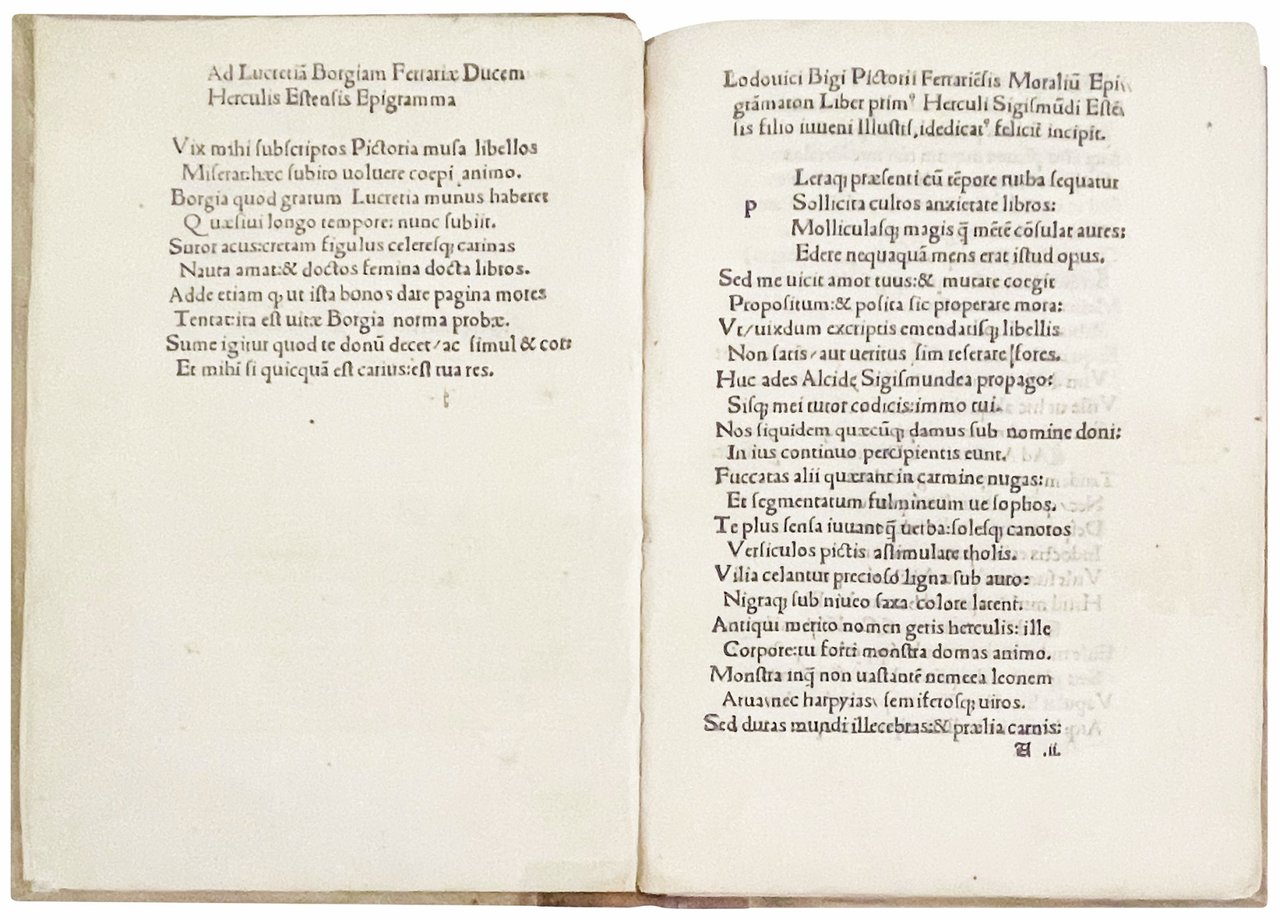
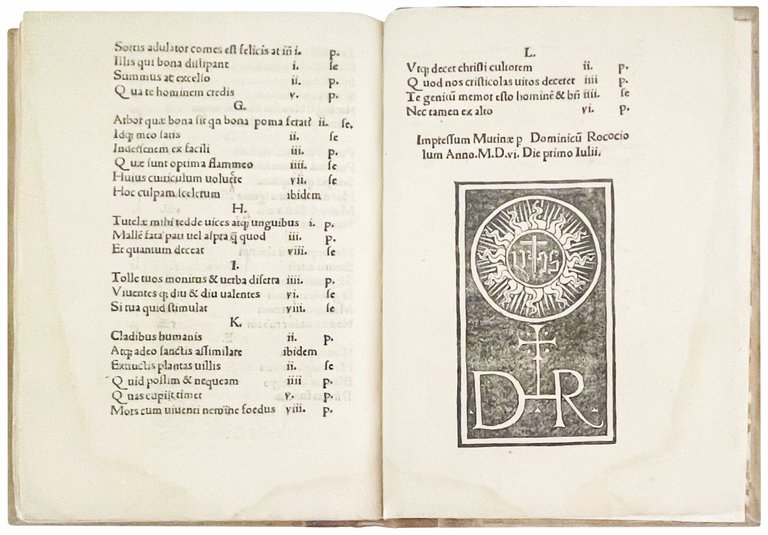
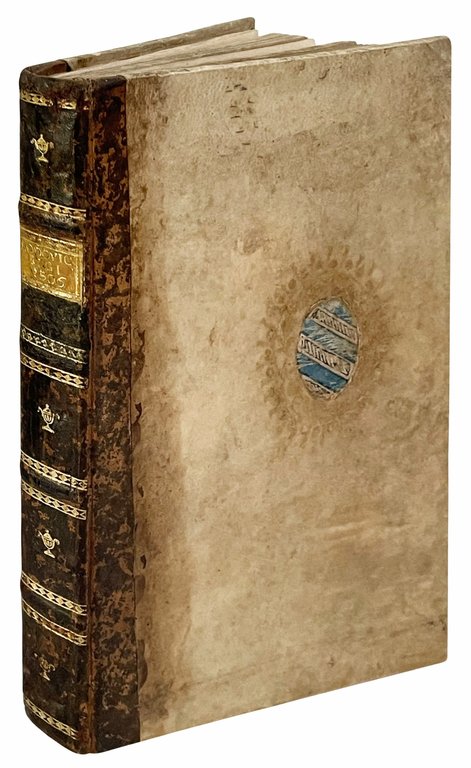
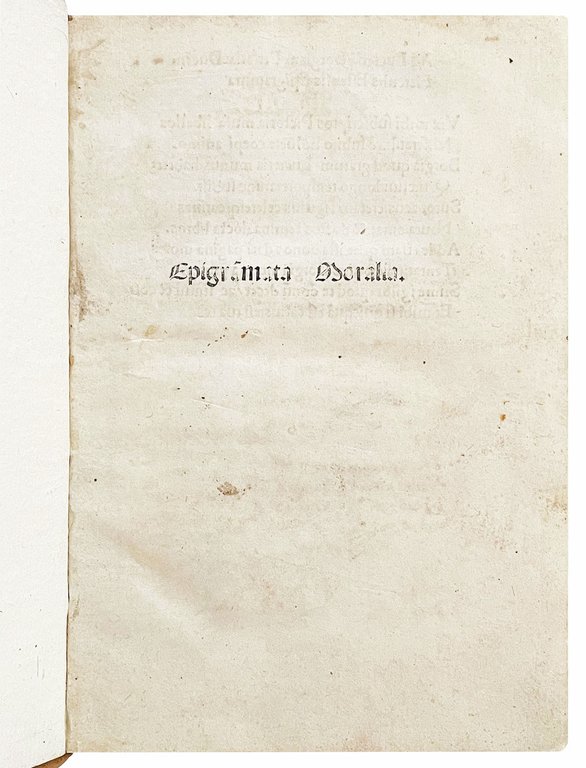
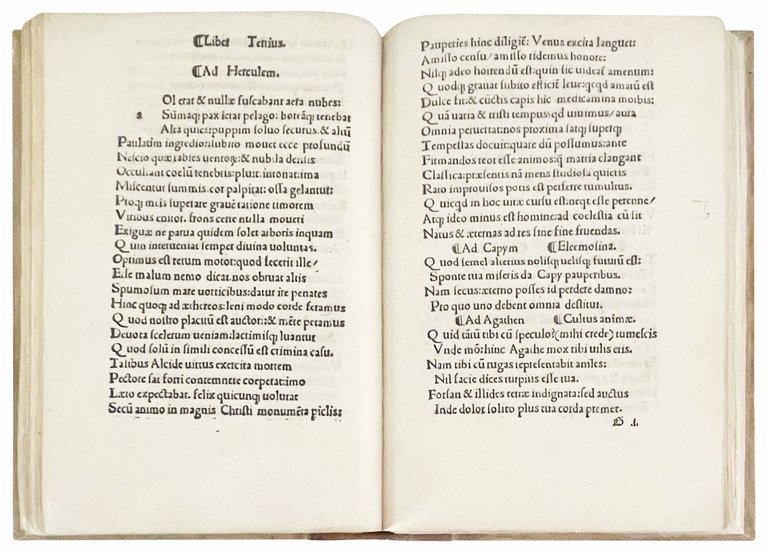
Livres anciens et modernes
PITTORIO, Lodovico (Ludovico o Luigi Bigi, 1454-1525)
Epigrammata moralia
Domenico Rococciola, 1506 (1 July)
3800,00 €
Govi Libreria Antiquaria
(Modena, Italie)
Les frais d'expédition corrects sont calculés une fois que l'adresse de livraison a été indiquée lors de la création de la commande. Un ou plusieurs modes de livraison sont disponibles à la discrétion du vendeur : standard, express, economy, in store pick-up.
Conditions d'expédition de la Librairie:
Pour les articles dont le prix est supérieur à 300 euros, il est possible de demander un plan de paiement échelonné à Maremagnum. Le paiement peut être effectué avec Carta del Docente, Carta della cultura giovani e del merito, Public Administration.
Les délais de livraison sont estimés en fonction du temps d'expédition de la librairie et de la livraison par le transporteur. En cas de retenue douanière, des retards de livraison peuvent survenir. Les frais de douane éventuels sont à la charge du destinataire.
Pour plus d'informationsMode de Paiement
- PayPal
- Carte bancaire
- Virement bancaire
-
-
Découvrez comment utiliser
votre Carta del Docente -
Découvrez comment utiliser
votre Carta della cultura giovani e del merito
Détails
Description
Rare first edition of Lodovico Pittorio's four books of moralizing classical epigrams, dedicated by him to Ercole d'Este's son Alfonso I, who in 1501 married Lucrezia Borgia and in 1505, upon his father's death, became duke of Ferrara. On the verso of the title is an epigram by Ercole d'Este to his daughter-in-law Lucrezia Borgia.
Originally from Ferrara, Pittorio was a poet, humanist, and a leading intellectual in the Este court. He was a pupil of Battista Guarini and was on friendly terms with Giovanni Pico della Mirandola, Pellegrino Prisciani, Matteo Maria Boiardo, Alberto Pio, Ercole Strozzi, Antonio Tebaldeo, and especially Giovanni Francesco Pico, of whom he became the tutor. Pittorio also collaborated with the painter Cosmè Tura on the famous Roverella Altarpiece: his are the Latin verses inscribed on the wooden base of the instrument at the bottom of the painting played by the two angels, verses that were later included in his poem collection Carmina tumultuaria printed in Modena in 1492 (cf. J. Manca, Cosmè Tura: The Life and Art of a Painter in Estense Ferrara, Oxford, 2000, p. 114).
In his youth, Pittorio was an author of licentious verses that he later repudiated under the influence of his pupil G.F. Pico. Pittorio then devoted himself to works of a more philosophical and devotional inclination. He wrote homilies and sermons and translated biblical psalms into the vernacular. In 1516, he published the Hippolyta Epigrammaton per dialogos opus libri sex and in 1520 the poem Gorricia (cf. S. Pasquazi, ed., Poeti estensi del Rinascimento, Florence, 1966, pp. XXXII-XLII; see also G. Andenna, Pittorio, Ludovico, in: “Dizionario Biografico degli Italiani”, vol. 84, Rome, 2015, s.v.).
Edit 16, CNCE40210; USTC, 849040.

